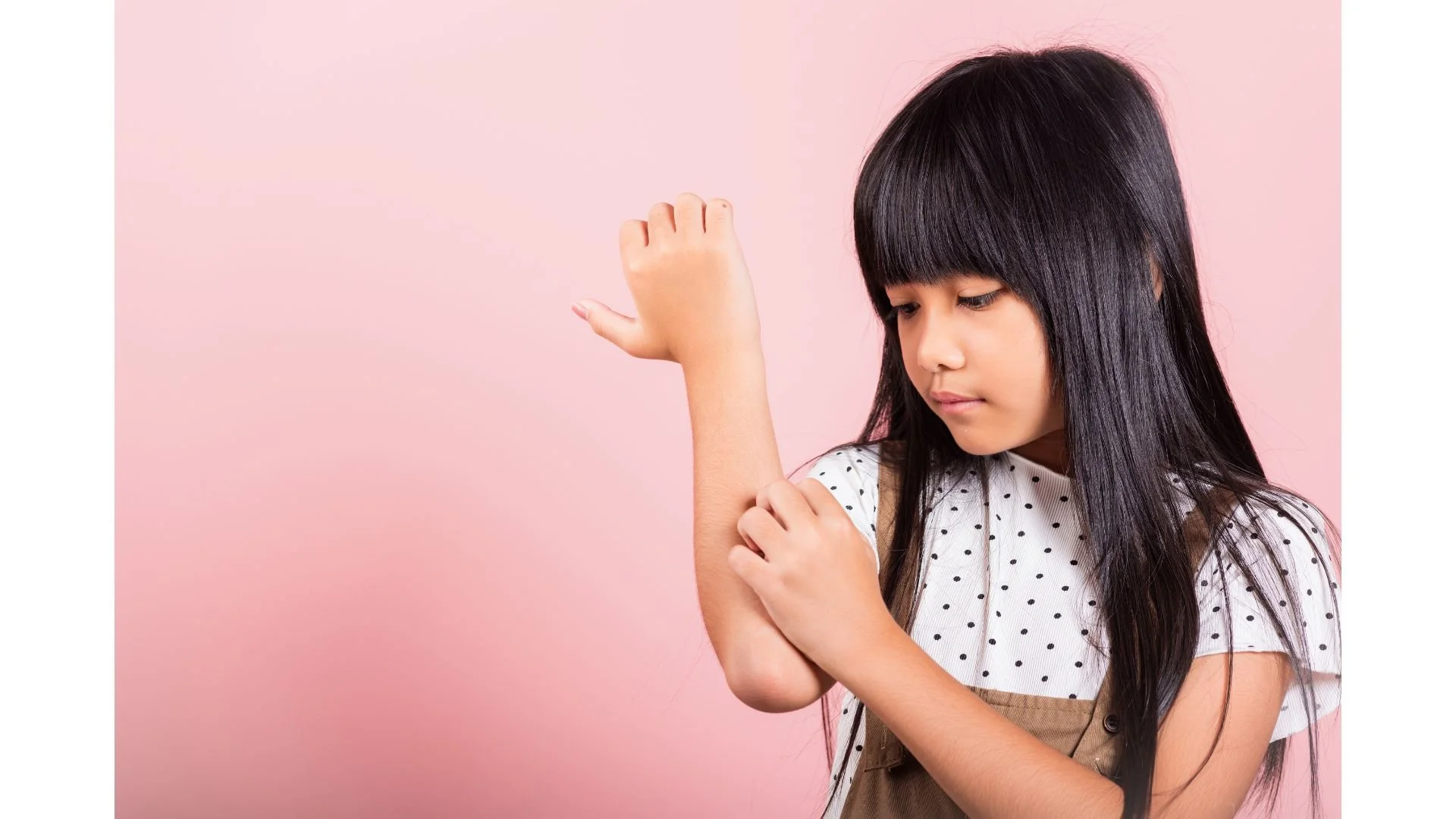Management Outside the Home
As your child starts to spend time outside of the home, it can be helpful to have plans for managing eczema in other settings, such as at daycare or school and during sports and social activities. Having a plan can help you, your child, and others caring for your child to feel more confident.
Managing Eczema at Daycare and School
Before your child starts school or daycare each year, schedule a meeting with school staff (such as the daycare director, the school nurse, and/or your child’s teacher) to discuss your child’s needs for managing eczema at school. The school nurse can help develop a specific plan for your child. Your child’s health care provider can also help you think about what should go into a school plan.
Some important information to share with your child’s daycare or school includes:
-
For example, eczema is a common skin condition that makes your child’s skin dry, red and itchy. It may have times it gets better and times it flares. Atopic dermatitis is not contagious.
-
For example, sometimes when children are itchy or don’t sleep well due to skin flares, this may affect concentration during the school day. Stress and anxiety may also make some children feel itchier. They may present as more fidgety or move around in their seat.
-
Many schools will ask for a form or letter from your child’s healthcare provider that lists your child’s eczema diagnosis and any medications/skin care treatments they may need at school.
-
For some children this will be on a regular schedule and for others this will be when they are itchy. For infants and toddlers, daycare staff may apply moisturizer during diaper changes. Older children may go to the nurse or keep moisturizer in a backpack or desk to use as needed and after handwashing. Think about whether your child can apply moisturizer on their own or if they need help, and if they will need reminders.
-
Depending on your child’s particular triggers (e.g., environmental allergies, heat, irritants), this could include bringing in a non-irritating hand cleanser from home, sitting away from heaters, sitting on a mat instead of directly on the rug at circle time, wiping off with a damp paper towel after gym class, keeping windows closed during pollen season, or changes to school uniforms or gym clothes.
-
If your child has asthma or food allergies, make sure your child’s school has plans to manage these conditions.
Make a plan to help your child manage itch at school. Let the school or daycare know what works well at home when your child is itchy and collaborate to make a plan that will work in the school setting. Involving your child in making the plan will increase their confidence handling flares at school.
Helpful ideas for managing itch at school include:
-
Telling children with eczema not to scratch is usually not helpful- this may make them feel embarrassed or frustrated. Instead, it’s more helpful for teachers to focus on what children CAN do when they feel itchy at school.
-
The child should know they are not in trouble if they scratch! The teacher wants to help them feel better. The signal can remind the child to use strategies to manage the itch. Some children use a secret signal when they need to leave class to visit the nurse.
-
A stress ball or small fidget object that doesn’t disturb other children can help instead of scratching.
-
This may include applying moisturizer or getting a cool pack or cool cloth to put on itchy areas. Older children may be able to keep moisturizer with them in a desk or backpack.
-
Heat and sweat can make children itchier so wiping off with a cool paper towel (and then applying moisturizer) or taking a cool drink can be helpful. They may need permission to end activities a few minutes early so they can care for their skin without being late to class.
-
Relaxation strategies such as deep breathing that help manage stress and calm the body. School counselors can often help with these strategies.
The teacher can also be an important partner in supporting your child socially and emotionally.
Give the teacher simple language they can use to help your child explain eczema to other children if questions come up. Usually when other children know about atopic dermatitis this cuts down on further questions and teasing. Simple information is often best. For example: “Eczema is itchy, dry, skin. It comes and goes.” Or “Eczema is like an allergy. You can’t catch eczema.”
You can also partner with the school to provide education about eczema to other students. Depending on your child’s age and comfort level, this could include: a family member or a teacher reading a children’s book about eczema, the child talking to the class about eczema (during circle time or as part of a presentation), or education from the school nurse during a health lesson.
See the Boston Children’s Hospital Information for Teachers handout for information about supporting children with eczema in the school setting.
See the Helping Your Child’s Classmates Understand Eczema blog post.
Some children with moderate or severe eczema may have a 504 Plan. Section 504 of the Rehabilitation Act of 1973 is a United States federal civil rights law that prohibits discrimination based on disabilities. A 504 plan is a formal agreement between the family and the school to ensure that children with special health care needs can participate fully in school activities. The plan specifies services and accommodations your child may need. An example for eczema might be the ability to leave the classroom for short breaks when they are itchy. You can request a 504 plan verbally or through a letter or email to your child’s school.
Exercise is important for physical health and is a great tool to release stress and improve mood. For many children with eczema, however, sweating can dry out the skin and trigger itch and flares. There are steps you can take so your child doesn’t have to miss out on the physical and emotional benefits of sports and other physical activities.
Handling Sports and Physical Activities
Key things to consider for handling sports and physical activities:
Clothing and Gear
Post Activity Skincare
Laundry and Equipment Hygiene
Cooling and Hydration
For further information about these tips, see this handout.
Make sure your child’s coach or instructor knows about their eczema and how heat and sweating may affect their skin. Coaches should understand that your child may need to take breaks to cool down or reduce intensity when skin is flared.
Planning for Playdates and Sleepovers
As your child starts to spend more time at friends’ homes without you present, good communication with other parents, and advanced planning with your child can make this a positive experience.
Remember you can take things slowly. If it’s easier to host a play date at your house first, that can be a great way to get to know other families.
For drop-off playdates, talk to the other parent/caregiver about your child’s eczema ahead of time. You can share strategies that can help if your child gets itchy, such as applying moisturizer or using a cool pack to cool down. Your child should know that there is an adult they can talk to if they feel itchy.
Ask the host family about potential eczema triggers for your child in their home (such as pets, for children with allergies to animals). You can talk with your child’s health care provider about good ways to manage allergies in these situations, such as keeping the animal in a separate room and having your child shower and change clothes immediately after coming home.
For sleepovers, make a plan with your child for how they will handle evening skincare. This might include showering and applying moisturizer and medications before the sleepover. Make sure to pack a clean towel, extra cleanser and moisturizer to apply before bed. Send your child with their own clean pillow, sleeping bag, or bedding. Make sure the hosting parent knows about your child’s eczema and any support your child might need with skincare or if they get itchy at night. Your child should know that if they need to come home, that is okay and no one will be upset with them.
If sleeping over is too difficult, consider a “sleep under.” Your child can stay out late with their friends but leave right before bed.
















